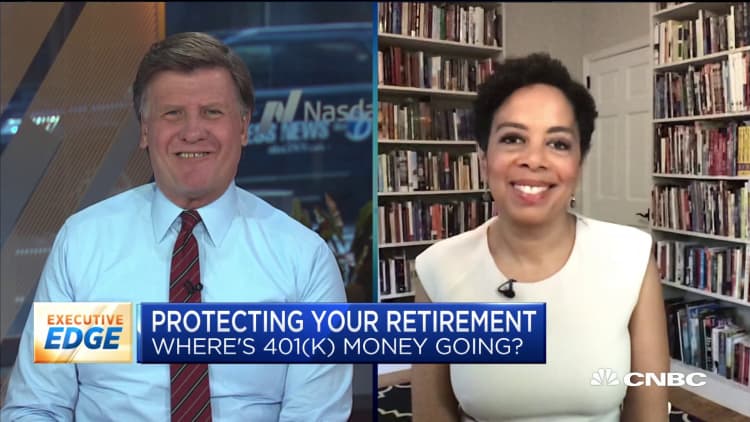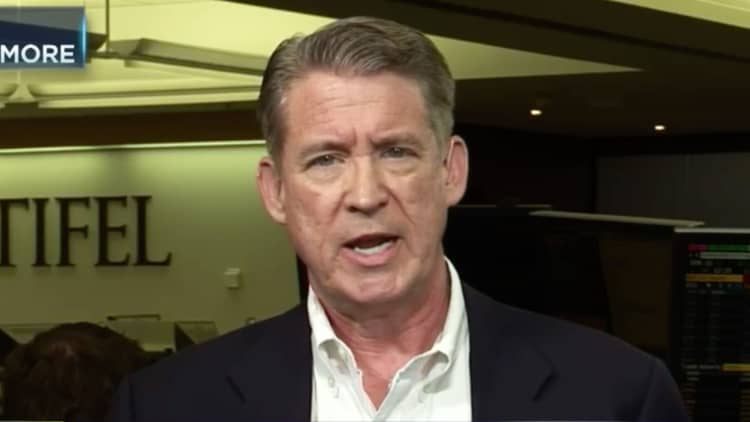The results are in: You can't time the market. If you have any doubts left about that fact, the coronavirus outbreak should put them to rest.
Except for a handful of scientists, no one saw the pandemic coming. What's more, there's little agreement over where it will take us. Some say life will soon return to normal, while others predict the global health crisis will give birth to a new way of living and, as a result, a new economy. We just don't know.
And the stocks in your 401(k) retirement plan have been just as confused. At the moment, the market is rallying on some new optimism about a potential coronavirus vaccine. But what if that hope proves false? You can expect more declines.
The volatility can be painful, especially for those approaching retirement or another goal, like sending their child to college or gathering a down-payment on a house.
More from Personal Finance:
Stashing cash? Savings interest rates sink
How to make your money work harder in the coronavirus crash
These banks are offering coronavirus financial aid
Let's say you had a $1 million portfolio, split between U.S. stocks (70%) and bonds (30%), on Jan. 1 of this year, at which point news of the coronavirus was just starting to trickle out of China.
By Monday, March 23, your savings would be down to about $780,000. Ouch. You might have been tempted to get out.
Yet, if you'd tried to time the market and moved to cash on that day, you'd have missed the massive gains the market saw the very next day, on Tuesday, March 24, when the Dow Jones Industrial Average had its biggest one-day spike since 1933.
And that portfolio, as a result, was back up to more than $830,000. (These calculations were provided to CNBC by Morningstar.)
"Recoveries can come in fits and starts," said Rob Williams, vice president of financial planning at Charles Schwab, adding that investors have been moving to cash and other defensive assets such as bonds as of late. "For longer-term investors, we suggest staying the course if they can."

Williams provided some data to prove his point: Over the last 20 or so years, the S&P 500 produced an average annual return of around 6%. But if you missed the best 20 days in the market over that time span, by, for example, moving out in declines, and then reinvesting later, your average annual return would shrivel to 0.1%.
Despite the unprecedented times, some things never change: If investors can't tolerate losses, they'll also miss out on gains.
"Pain is a sign you're investing well," said Allan Roth, founder of financial advisory firm Wealth Logic in Colorado Springs, Colorado.

While you need to be able to sit with some discomfort, keep in mind that good times will be here again. Even aggressive, stock-heavy portfolios took just around two years to fully recover from the last financial crisis, Charles Schwab found.
It can feel impossible to imagine a different reality than the one we're engulfed in.
Yet we've been hit with disasters and devastation before, and the market has always bounced back. Why give up now?


